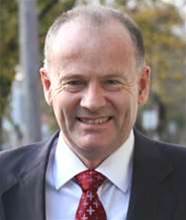During his address to the National Press Club in Canberra today, the Finance Minister highlighted investments in mobility, broadband, video conferencing and blogging as examples of how the Rudd Government intends to improve its productivity.

He spent a good deal of the speech touting the Government's recent investment in a $13.8 million telepresence network.
Tanner revealed that the network will cost some $4 million a year to operate - a cost he intends to share with the State Governments.
But he says the Government will "save much more" in reduced airfares and productivity.
"Coordinating diaries is much easier when no-one is travelling," he said. "Meetings requiring two week's notice might now only need two days."
Tanner said the telepresence system is "so good that you actually feel like the people you're talking to are in the same room. No clunkiness, no voice delays, no fuzzy pictures."
A scoping study by Deloitte informs the Government it could save up to $26 million a year by adjusting the way it purchases travel, but Tanner made no specific mention of how much the 20 telepresence units specifically are expected to save in dollar terms.
Tanner highlighted the Rudd Government's 'reform agenda' - applauding his own decision to scrap the $1.2 billion "flawed" Access Card project, and making a brief mention of the National Broadband Network - confirming that the Government's "reform" of broadband will proceed despite the current economic crisis.
And to highlight the Government's Web 2.0 credentials, Tanner said the Rudd Government is "experimenting with blogging as a continuous feedback mechanism to help improve Government policy and regulation."
During Q&A with the press, Tanner held up a mobile phone and said, "You know, if you want to know what's increased productivity across the world, [it's] this thing. We will look back - those of us who are still here - in 50 years time, and call this period of human existence the era of the mobile phone."
"[It] had extraordinary impact on productivity. Extraordinary impact. The internet, obviously, equally. But, the internet and the mobile phone, they're becoming the same thing."
Tanner emphasised that the Rudd Government considers productivity as key to generating "long-term sustainable growth", as opposed to the "unsustainable growth" and "grotesque executive salaries" enjoyed under the Howard Government.
The largest players in Australia's IT industry look to have already picked up on Tanner's productivity rhetoric, with both IBM and Telstra commissioning strangely similar reports on the impact of ICT on productivity.
IBM commissioned Access Economics to study the link between microeconomic reform, ICT and productivity - in what could almost have been an extract from Tanner's speech.
The report found that microeconomic reform in the 1990s "increased the uptake of ICT" and enabled businesses to operate more efficiently. But since 2003, productivity has fallen by 0.9 per cent.
"The Government should consider how policy incentives are encouraging business to adopt new ICT advances to help Australia respond positively to the current economic challenges it now faces," concluded Ric Simes, Director of Access Economics.


_(23).jpg&h=140&w=231&c=1&s=0)

_(28).jpg&h=140&w=231&c=1&s=0)






 iTnews Executive Retreat - Security Leaders Edition
iTnews Executive Retreat - Security Leaders Edition
 iTnews Cloud Covered Breakfast Summit
iTnews Cloud Covered Breakfast Summit
 Melbourne Cloud & Datacenter Convention 2026
Melbourne Cloud & Datacenter Convention 2026
 The 2026 iAwards
The 2026 iAwards












_(1).jpg&h=140&w=231&c=1&s=0)



